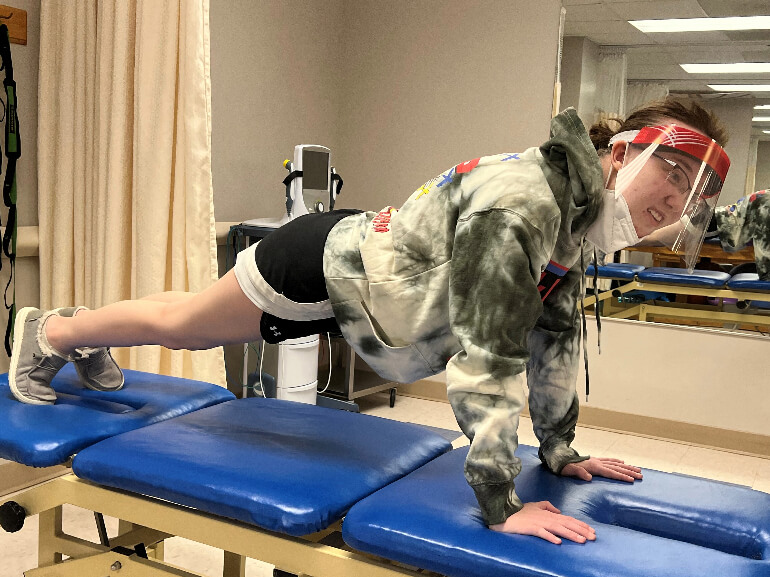Avery's Story

Traumatic brain injury
As a parent, you want only the best for your children. You want to watch them grow into healthy, happy and responsible adults. Avery Boling, an 18-year-old high school student, would have made any parent proud. Taking a semester and a half of finishing school, working as a hostess for a local restaurant, a volunteer at a veterinary clinic and taking on babysitting services, some would say her plate was full.
After a normal day of school and work, Avery and her boyfriend decided to go out for food. Her mom, realizing that Avery had not come home at her usual time, called their phones. A police officer answered.
Avery had been ejected from her boyfriend’s vehicle during a motor vehicle accident and was in grave condition.
Stabilized at Pampa Regional Medical Center, Avery was then taken by helicopter to UMC Children’s Hospital in Lubbock, Texas. Doctors diagnosed Avery with a traumatic brain injury. She had difficulty speaking and was unable to hold a conversation. Her balance was poor, and she had difficulty walking.
Stable and recovering from her accident, Avery still required expert rehabilitative care. She wanted to walk on her own, hold conversations with her family and take care of her daily needs. Her entire family began researching inpatient rehabilitation facilities - they wanted the very best for Avery. Their research led them to Baylor Scott & White Institute for Rehabilitation (BSWIR) – Dallas.
The rehabilitation team at BSWIR – Dallas worked with Avery and her family to put a treatment plan in place. That plan included physical, occupational, recreational and speech therapy. Avery had a lot of work to do, but her goal was to walk during her high school graduation, and she had the love and support of her friends and family to keep her motivated.
Her physical therapist focused on numerous activities to promote mobility. They worked on walking to strengthen her lower extremities and increase her ability to bear her own weight. This also engaged her mind and improved her neuro recovery, as well as enhancing her tolerance for being upright. Gait training increased her cardiovascular endurance. High stepping, backward and lateral walking improved her gait and tossing a ball while doing squats improved her balance. She also walked up and down stairs several times a day.
When Avery began her rehabilitation journey, she needed total assistance for basic self-care, such as brushing her teeth and getting dressed. Therefore, occupational therapy focused on tasks that would improve her ability to take care of herself. Her therapists used activities where she had to focus on more than one task to improve her cognitive and social skills. Posture training and core strengthening exercises improved her balance, her ability to transfer between surfaces and her tolerance for sustained activity. When she left therapy, Avery required only minimal assistance with her self-care routine.
Speech therapy helped Avery improve skills in organization and reasoning, applying newly learned information and using strategies that would improve her short-term memory.
Avery and her mom felt that she made great strides toward her goals since coming to BSWIR – Dallas. “I walked a lot,” she said. Her mom pointed out that Avery, once shy and bashful, has really opened up during her time in rehabilitation. “Everybody has made her feel so welcome. She just loves to talk to everybody. She has blossomed,” her mom said.
Her therapists also acknowledged her effort, describing her progress as “night and day.”
“Being here and seeing Avery’s progress has been an absolute miracle,” said Avery’s mom. “It’s been amazing.”